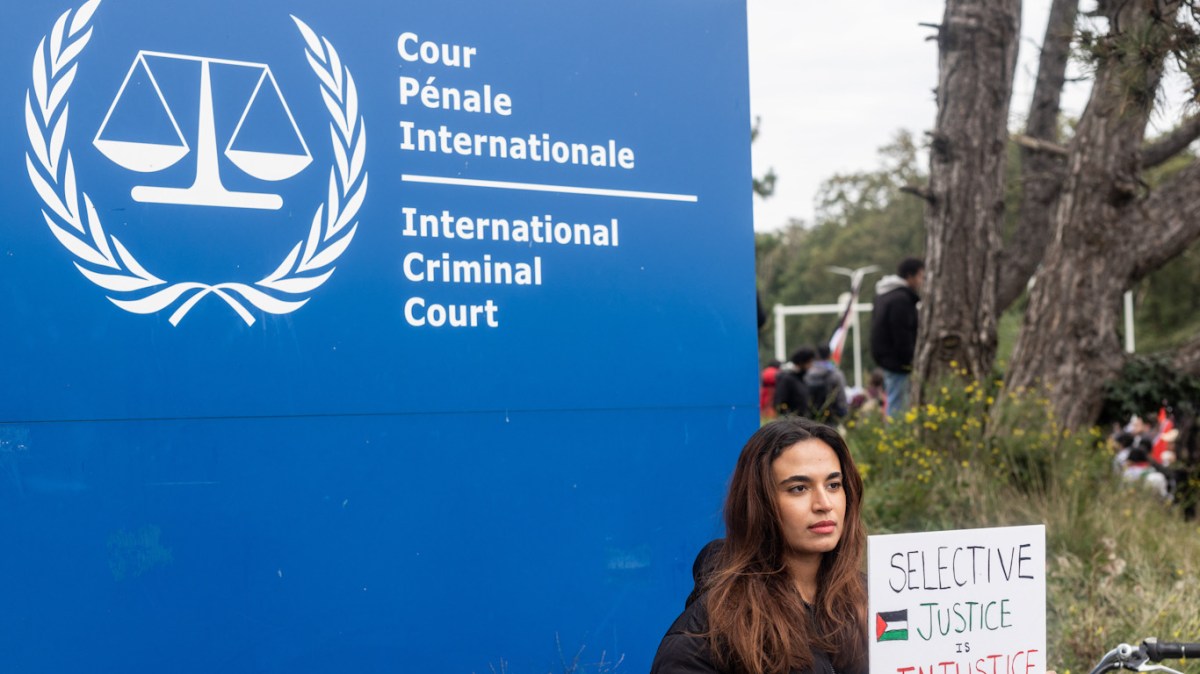ICC, short for The International Criminal Court, is an intergovernmental judiciary organization in force internationally since 2002. But what does it do exactly?
The ICC was established through The Rome Statute treaty in July 1998, and came into force in 2002 as the first and only active permanent international court with jurisdiction to prosecute individuals for certain inhumane crimes. Currently presided over by Karim Khan as the prosecutor of the court, the ICC has recently gained traction for seeking arrest warrants in the ongoing seven-month-long war in Gaza between the Israeli government and Hamas.
According to the UN, the ICC was created with the “millions of children, women and men” in mind who “have been victims of unimaginable atrocities that deeply shock the conscience of humanity.” Thus, it has been given the power to prosecute individuals accused of four grave crimes: Genocide, crimes against humanity, war crimes, and the crime of aggression.
What are the powers of the ICC?
Though the ICC is an international organization, it is an independent court, and can only assert its power in its member countries. It is legally independent of the United Nations, but endorsed by the General Assembly unlike the ICJ, which is an organ of the UN.
The ICC lacks any armed force, and depends on cooperation from the law enforcement of its members to apprehend those charged with crimes. However, the court does not replace national courts, and instead stands a court of last resort. The ICC can only intervene in cases falling within the court’s purview, in which grave crimes have been committed, and where legal authorities in the State are unwilling or unable to resolve said issues.
It also cannot put individuals on trial from non-member countries, since it is barred from trying individuals in their absence. This limits the power and authority of the ICC significantly, since some major superpowers like the United States, China, and Russia are not members of the court. Due to this, last year’s arrest warrant for the President of Russia Vladimir Putin due to his criminal involvement with the Russia-Ukraine war resulted in no actions, because Russia doesn’t recognize the court’s power.
How does the ICC work?
Abiding by the morally correct practices, all defendants are presumed innocent until proven guilty beyond a reasonable doubt before the ICC. Each defendant is entitled to public and impartial proceedings with a representing lawyer. The court also seeks to protect the safety and physical and psychological integrity of all victims and witnesses, while allowing them critical rights. Among the rights is the right to follow the proceedings in a language they fully understand.
What has the ICC done so far?
The International Criminal Court (ICC) detention cell in the Dutch city of The Hague is home to 21 of the 46 arrest warrants the court has issued since its founding. There are now 31 cases on its docket. The court has been effective in prosecuting people for war crimes, including those committed in Srebrenica, that were carried out in the former Yugoslavia.
The court has also investigated some of the world’s most violent conflicts, including in Darfur, the Democratic Republic of the Congo (DRC), Georgia, and Ukraine. The ongoing conflict in Gaza has also entered the court, since the Palestinian territory has been recognized as a member of the court since 2015, despite its disputed statehood status.
The ICC established a Trust Fund for the victims of these crimes, bringing the Court’s initial reparations judgments to fruition. Over 450,000 victims have received physical, psychological, and socioeconomic support from the Trust Fund through the ICC’s aid programs so far.
President Netanyahu’s arrest warrant by the ICC
In an exclusive interview with CNN on May 20, 2024, ICC prosecutor Karim Khan revealed that the ICC’s prosecution team is seeking warrants against Israel’s Prime Minister Benjamin Netanyahu, Israel’s Defense Minister Yoav Gallant, Hamas leader Yahya Sinwar, and two top Hamas leaders — Mohammed Diab Ibrahim al-Masri, and Ismail Haniyeh.
The court seeks to charge them with war crimes and crimes against humanity over the Oct. 7 attacks on Israel and the subsequent war in Gaza. However, the warrants are awaiting formal approval by the panel of ICC’s judges according to the court’s latest rules.
The charges against the Hamas leaders Sinwar, Haniyeh, and al-Masri include “extermination, murder, taking of hostages, and rape and sexual assault in detention.” On the other hand, the charges against Netanyahu and Gallant include “causing extermination, causing starvation as a method of war, including the denial of humanitarian relief supplies, and deliberately targeting civilians in conflict.”
This move of the ICC has met with criticism from the United States Secretary, Anthony Blinken, who said in a Press statement dated May 20, 2024, that “the decision of the ICC could jeopardize ongoing efforts to reach a ceasefire agreement.” (via U.S. Department of State) He also criticized putting the Israel government and Hamas on equal footing, saying
“We reject the Prosecutor’s equivalence of Israel with Hamas. It is shameful. Hamas is a brutal terrorist organization that carried out the worst massacre of Jews since the Holocaust and is still holding dozens of innocent people hostage, including Americans.”
The ICC has not yet replied to the Secretary and is awaiting approval from the judges to move forward with the arrest warrants. However, even after approval, President Netanyahu and Defense Minister Gallant would be out of reach for the prosecutors, since Israel does not recognize the ICC’s power.

